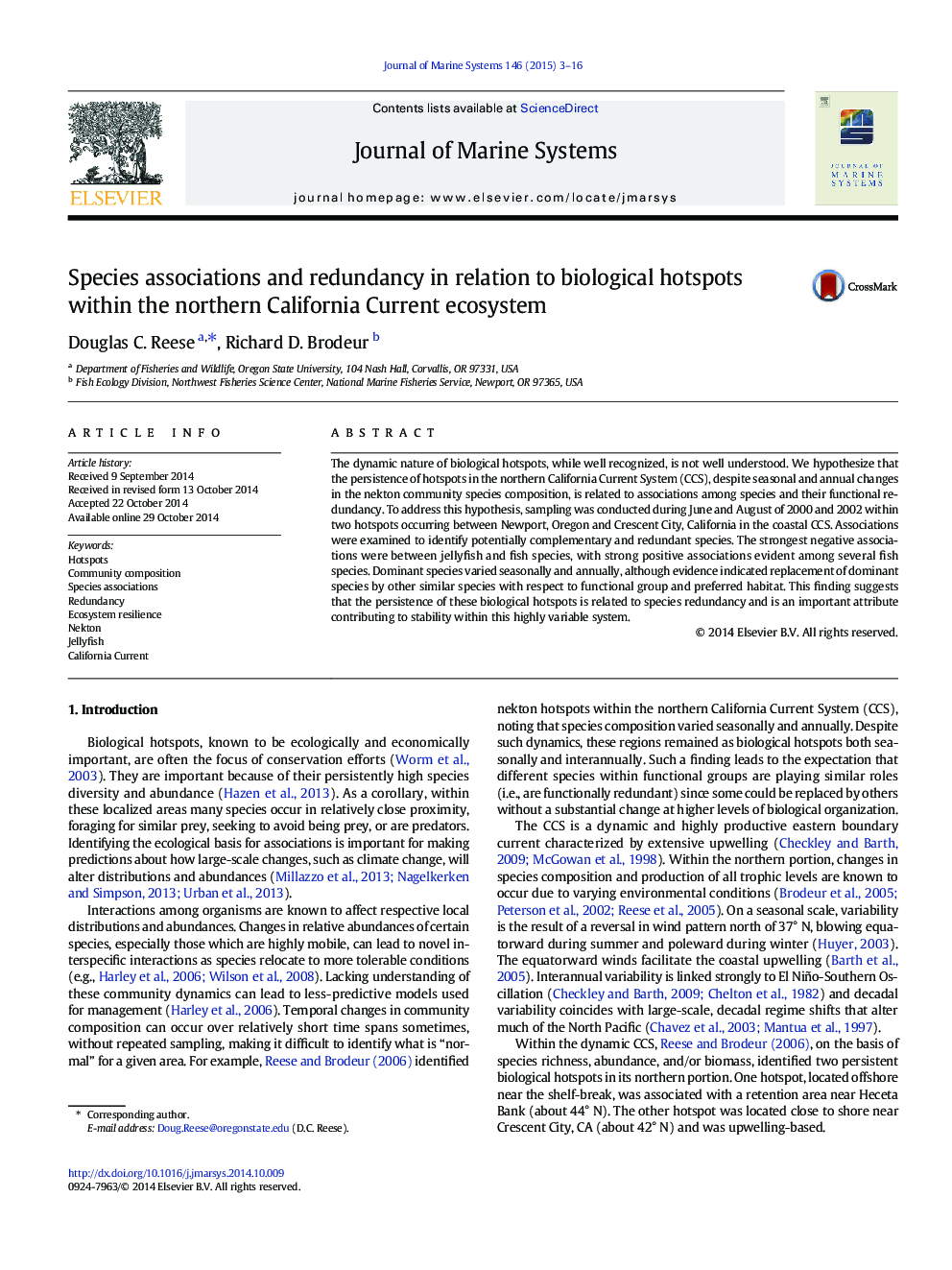| Article ID | Journal | Published Year | Pages | File Type |
|---|---|---|---|---|
| 4547976 | Journal of Marine Systems | 2015 | 14 Pages |
The dynamic nature of biological hotspots, while well recognized, is not well understood. We hypothesize that the persistence of hotspots in the northern California Current System (CCS), despite seasonal and annual changes in the nekton community species composition, is related to associations among species and their functional redundancy. To address this hypothesis, sampling was conducted during June and August of 2000 and 2002 within two hotspots occurring between Newport, Oregon and Crescent City, California in the coastal CCS. Associations were examined to identify potentially complementary and redundant species. The strongest negative associations were between jellyfish and fish species, with strong positive associations evident among several fish species. Dominant species varied seasonally and annually, although evidence indicated replacement of dominant species by other similar species with respect to functional group and preferred habitat. This finding suggests that the persistence of these biological hotspots is related to species redundancy and is an important attribute contributing to stability within this highly variable system.
